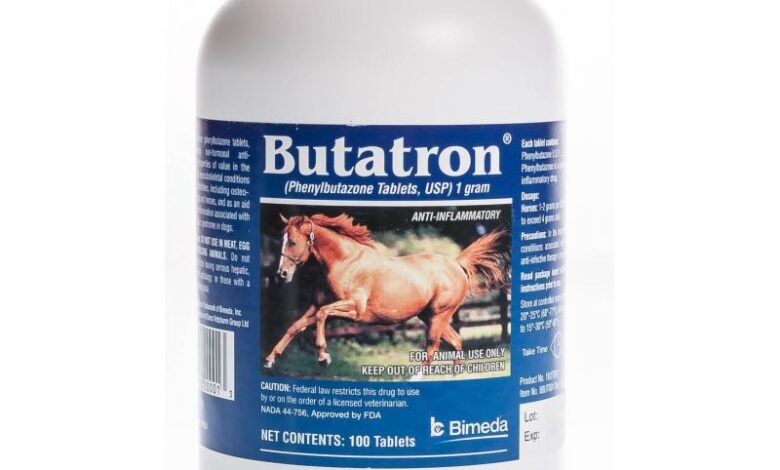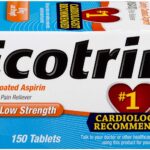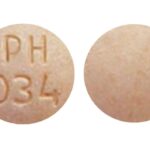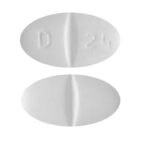Horse Pills: Uses, Dosage, Side Effects, Warnings

Horse pills, also known as “bute” contains Phenylbutazone (PBZ), a nonsteroidal antiinflammatory drug (NSAID) that is not commonly prescribed due to the high incidence of serious adverse reactions.
Horse pills has anti-inflammatory, antipyretic, and analgesic activities. It is especially effective in the treatment of ankylosing spondylitis. It also is useful in rheumatoid arthritis and Reiter’s syndrome (investigational indication). Although phenylbutazone is effective in gouty arthritis, risk/benefit considerations indicate that this drug should not be employed for this disease.
In the United States and United Kingdom, it is no longer approved for human use (except in the United Kingdom for ankylosing spondylitis), as it can cause severe adverse effects such as suppression of white blood cell production and aplastic anemia. This drug was implicated in the 2013 meat adulteration scandal. Positive phenylbutazone tests in horse meat were uncommon in the UK, however.
How does Horse pills work?
The active ingredient in Horse pill (Phenylbutazone) is a synthetic, pyrazolone derivative. It is a nonhormonal anti-inflammatory, antipyretic compound useful in the management of inflammatory conditions. The apparent analgesic effect is probably related mainly to the compound’s anti-inflammatory properties and arise from its ability to reduce production of prostaglandin H and prostacyclin. Prostaglandins act on a variety of cells such as vascular smooth muscle cells causing constriction or dilation, on platelets causing aggregation or disaggregation and on spinal neurons causing pain. Prostacylcin causes vascular constriction platelet disaggregation.
Phenylbutazone binds to and inactivates prostaglandin H synthase and prostacyclin synthase through peroxide (H2O2) mediated deactivation. The reduced production of prostaglandin leads to reduced inflammation of the surrounding tissues.
What are the side effects of Horse pills?
The most common side effects of Horse pills involve the gastrointestinal system.
Other important side effects include:
- ulcerations,
- abdominal burning,
- pain,
- cramping,
- nausea,
- gastritis,
- serious gastrointestinal bleeding, and
- liver toxicity.
Sometimes, stomach ulceration and bleeding can occur without any abdominal pain. Black tarry stools, weakness, and dizziness upon standing may be the only signs of internal bleeding. Rash, kidney impairment, ringing in the ears, and lightheadedness are also seen (all more frequently in seniors).
What drugs can interact with horse pill?
Horse pills can interact with several medications some of which include:
Antihypertensive agents: Inhibition of the effect of antihypertensive agents by phenylbutazone can probably be explained by salt and water retention.
Aspirin: Phenylbutazone interferes with the tubular excretion of aspirin.
Coumarin anticoagulants: Phenylbutazone displaces warfarin from binding sites on serum albumin, temporarily increasing its effects before the clearance of warfarin increases because of an increase in the unbound fraction. If that were the only mechanism, this interaction would not be important. However, phenylbutazone also inhibits the metabolism of S-warfarin and induces the metabolism of R-warfarin; the half-life of racemic warfarin is unchanged, but because the S isomer is more potent than the R isomer, the action of warfarin is potentiated.
Oral hypoglycemic drugs: Phenylbutazone can potentiate the hypoglycemic effects of the sulfonylureas acetohexamide, chlorpropamide, tolbutamide, and glibenclamide. One mechanism of this interaction is interference with tubular excretion.
Penicillins: Phenylbutazone interferes with the tubular excretion of penicillins.
Phenytoin: Phenylbutazone can reduce the clearance of phenytoin by inhibiting CYP2C9.
Sulfonamides: Phenylbutazone can displace sulfonamides from protein-binding sites.





